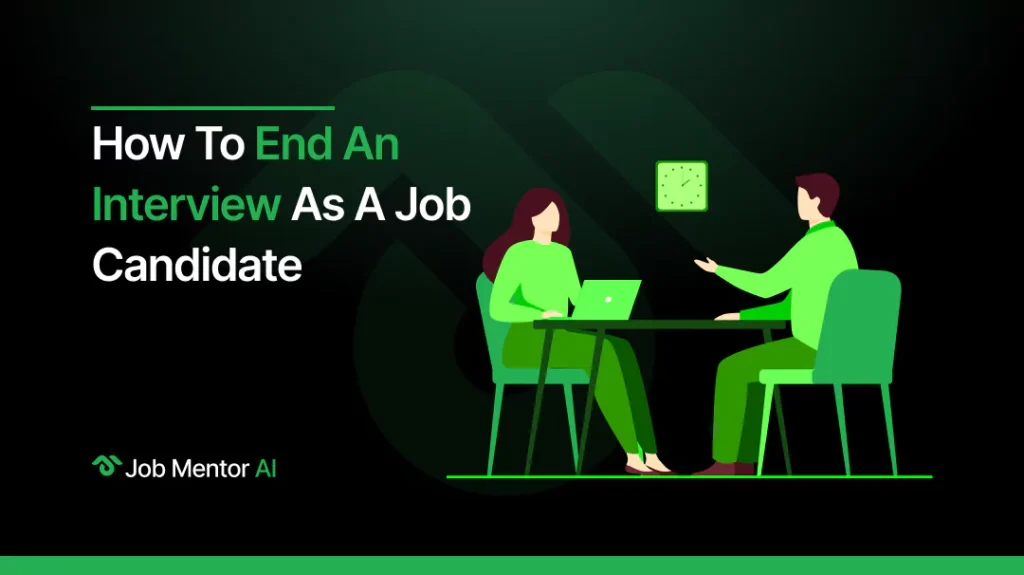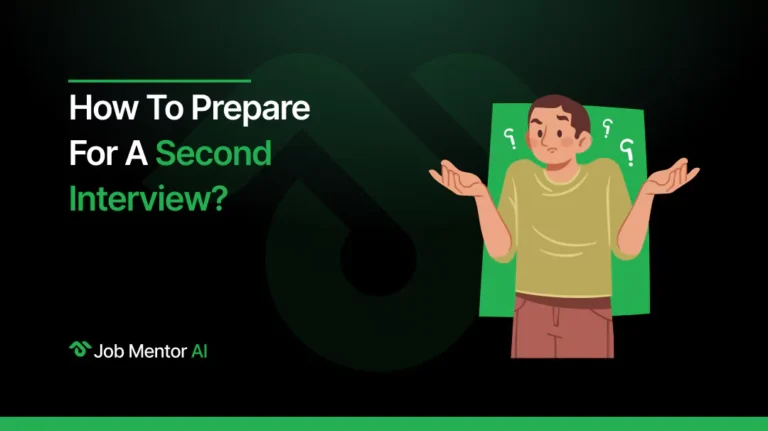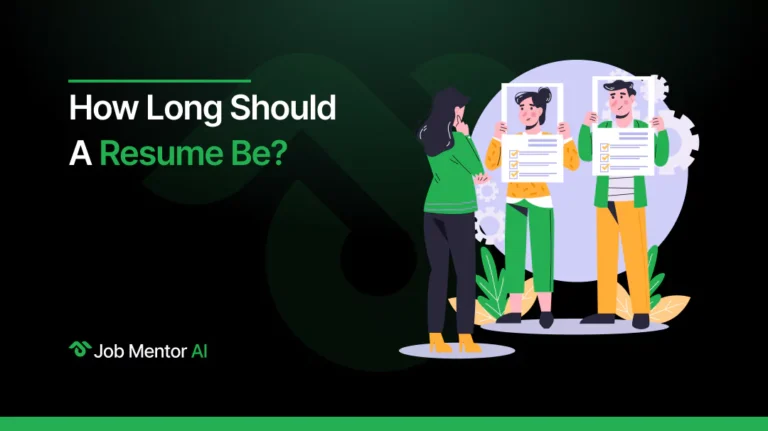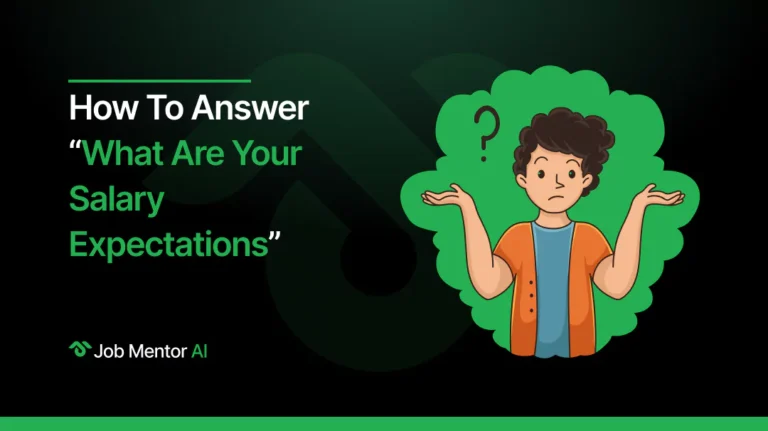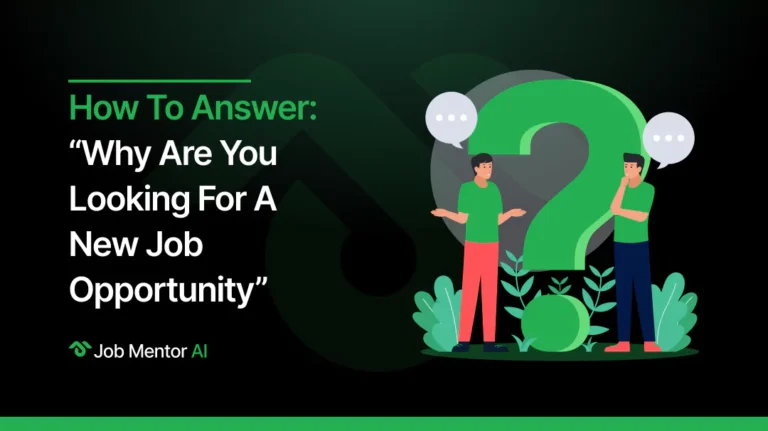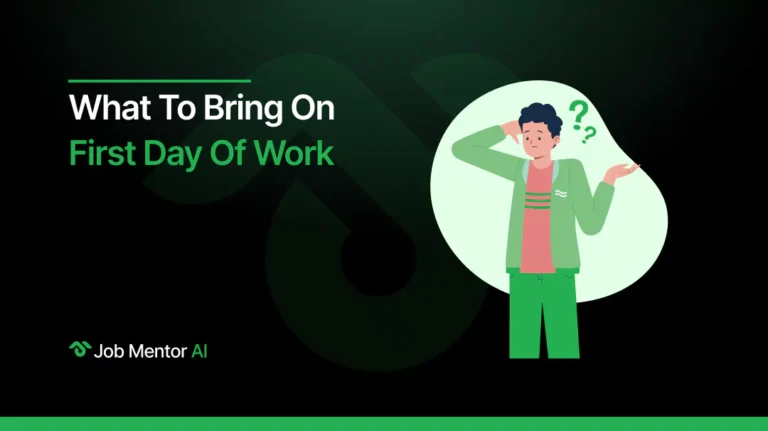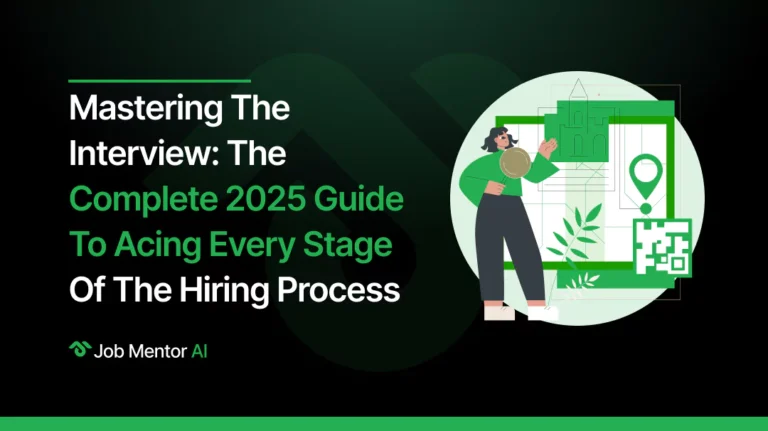Job interviews can feel like a lot of pressure. You’ve prepared answers, researched the company, and practiced your “Tell me about yourself” response. But here’s something many candidates forget: how you end the interview matters just as much as how you begin it.
The final moments are your last chance to leave a memorable impression, show professionalism, and express genuine interest. In this blog, we’ll explore how to end an interview confidently, including questions you can ask, helpful tips, and why it all matters.
Why It’s Important to End an Interview Well
The end of your interview gives you one final opportunity to highlight your interest and professionalism. Many hiring managers say they remember the beginning and end of an interview the most.
Ending your interview the right way can:
- Reinforce your enthusiasm for the role
- Help clarify anything that came up earlier
- Show that you’re thoughtful and engaged
- Leave a strong, lasting impression on the interviewer
Want to feel more confident during your interviews? Use an AI Interview Assistant to practise thoughtful responses and prepare for a standout finish.
20 Questions to Ask at the End of an Interview (With Sample Explanations)
1. How would you describe the company's culture?
Asking this question shows the interviewer that you care about finding the right cultural fit in your next position. You can also gain a broad overview of the company’s philosophy on how it prioritizes employee satisfaction.
2. What does success look like in this role?
This question helps you understand how your performance will be measured and what’s expected in the short and long term. It also shows you’re results-driven and ready to contribute.
3. What are the biggest challenges someone in this position might face?
It’s a great way to get insight into the day-to-day responsibilities. It also shows that you’re realistic and prepared to tackle potential difficulties with a positive attitude.
4. How would you describe the team I’d be working with?
This gives you a feel for the team dynamics and personalities. It also shows that you care about how well you’ll fit into the group.
5. What do you enjoy most about working here?
This adds a personal touch to the interview and helps build a connection. It also gives you a glimpse into the employee experience.
6. How is performance typically measured and reviewed?
This shows that you’re open to feedback and interested in growing within the role. It also helps you understand how success is tracked and how often you’ll get feedback.
7. Can you tell me about the next steps in the hiring process?
This question signals that you’re eager to move forward and helps you mentally prepare for what’s coming next.
8. Are there any opportunities for professional growth or training?
Shows your long-term interest in the company and your commitment to self-improvement. It also helps you see if the company invests in employee development.
9. How does the team typically handle collaboration and feedback?
This highlights your desire to work as a team and keep improving. It also shows you’re open to communication and eager to contribute effectively.
10. What are the company’s biggest goals for the next year?
This question gives you a broader picture of the company’s vision and future plans. It shows you want to align your efforts with the company’s direction.
11. How do new employees usually get onboarded?
It shows that you’re thinking ahead and want to start strong. It also helps you know what kind of support you’ll get in your first few weeks.
12. Are there cross-functional projects or opportunities to work with other teams?
This signals your interest in broadening your skillset and working collaboratively. It also tells you how much exposure you’ll have to other departments.
13. What’s something that surprised you when you joined this company?
This adds a personal and casual element to the conversation. It may also reveal helpful insights you wouldn’t get from the job description.
14. Is there anything about my background that gives you hesitation?
It’s a bold and professional move. It shows confidence, openness to feedback, and a willingness to address any concerns directly.
15. What qualities have made others successful in this role?
This gives you a chance to match your strengths with the company’s expectations. It also helps you tailor your final impression around what really matters to them.
16. How does this role contribute to the company’s overall mission?
Asking this shows you’re thinking beyond just your responsibilities and want to understand how your work fits into the bigger picture. It also highlights that you’re purpose-driven.
17. What are the most immediate projects that need attention in this role?
This helps you understand the short-term priorities and shows that you’re ready to hit the ground running if hired.
18. How has this position evolved over time?
This gives insight into growth opportunities and helps you understand how the role has changed based on company needs.
19. Are there mentorship or leadership development opportunities?
This shows a proactive attitude toward career growth and development. It also gives you a sense of how the company supports long-term employee success.
20. What do top performers in this position usually do differently than others?
This lets you learn what excellence looks like from the start and shows your intention to do your best from day one.
These questions show that you’ve thought beyond just getting hired , you’re already imagining how to make a great impression in an interview and thrive once you’re there.
Tips to Make a Good Impression in an Interview (Especially at the End)
Here are some things to keep in mind as you wrap up your next interview:
1. Express Gratitude
Always thank the interviewer for their time and the opportunity. It’s a simple gesture that leaves a warm impression.
2. Reaffirm Your Interest
Make sure to say something like, “After speaking with you, I’m even more excited about this opportunity.”
3. Clarify Any Unanswered Questions
If you feel like something didn’t go well earlier, now’s the time to briefly touch on it and add any clarifying points.
4. Ask About the Next Steps
This shows that you’re eager and serious about moving forward. It also helps you mentally prepare.
5. Stay Confident and Friendly
Even if you feel nervous or unsure, end with a smile and a handshake (or verbal thank-you if virtual).
If you’re struggling to prepare on your own, consider using an AI Mock Interview Practice. It’s a great way to build confidence and get feedback in a realistic setting.
How to End the Interview: Sample Phrases You Can Use
You don’t have to say anything fancy, here are a few natural ways to close:
- “Thank you for taking the time to speak with me today. I really enjoyed learning more about the team and the role.”
- “I’m very excited about the possibility of joining [Company Name]. Please let me know if you need anything else from me.”
- “This conversation has made me even more confident that this role is a great fit.”
Consider using our AI interview answer generator to craft closing responses tailored to your specific role, helping you leave a polished, genuine impression at the end of your interview.
Conclusion
Ending your interview with thoughtfulness and confidence can make a big difference. It shows that you’re not just a good fit , you’re someone who cares about the little things.
With the right preparation, the closing moments can be your strongest. Be kind, be confident, and show your interest. Whether you’re facing common group interview questions or a one-on-one conversation, how you end things matters just as much as how you start.
Table of Contents
Frequently Asked Questions
What is a good closing statement?
A good closing statement is confident yet polite. You might say something like, “Thank you for taking the time to speak with me today. I’m really excited about the opportunity and believe my background aligns well with the role. I look forward to the next steps.” It’s a great way to make a great impression in an interview.
How to end ‘Tell me about yourself’?
When answering the “Tell me about yourself” question, end by briefly tying your experience to the role you’re applying for. For example: “and that’s what brings me here today, I’m really excited about the chance to contribute to your team.” If you’re unsure how to structure this answer.
How do you politely end an interview?
You can politely wrap up by thanking the interviewer, expressing interest in the role, and asking about next steps.
For example: “Thank you for the conversation today. I truly appreciate learning more about the team and position. May I ask what the next steps look like?”
What do you say at the end of an interview?
At the end of an interview, it’s best to briefly recap your interest in the position and thank them for their time. You could say, “It’s been great speaking with you. I’m very interested in the role and hope to have the chance to work with your team.”
What should I say in a final interview?
In a final interview, highlight how your experience and values align with the company. Be ready to talk about long-term goals, what excites you most about the opportunity, and how you can add value.

